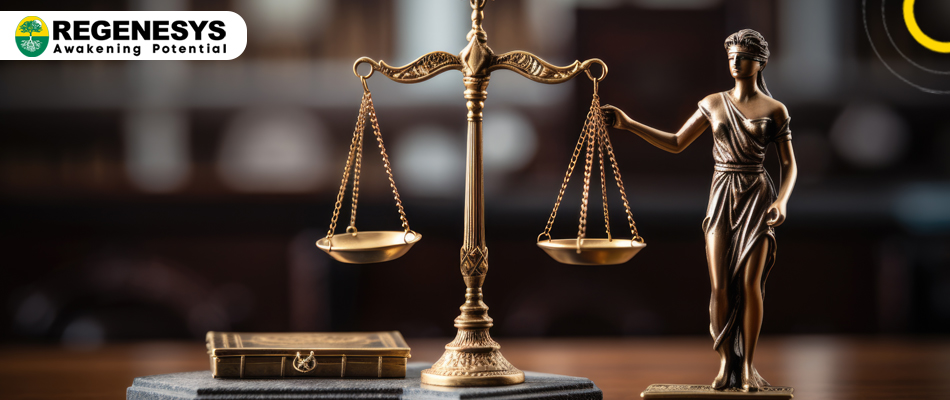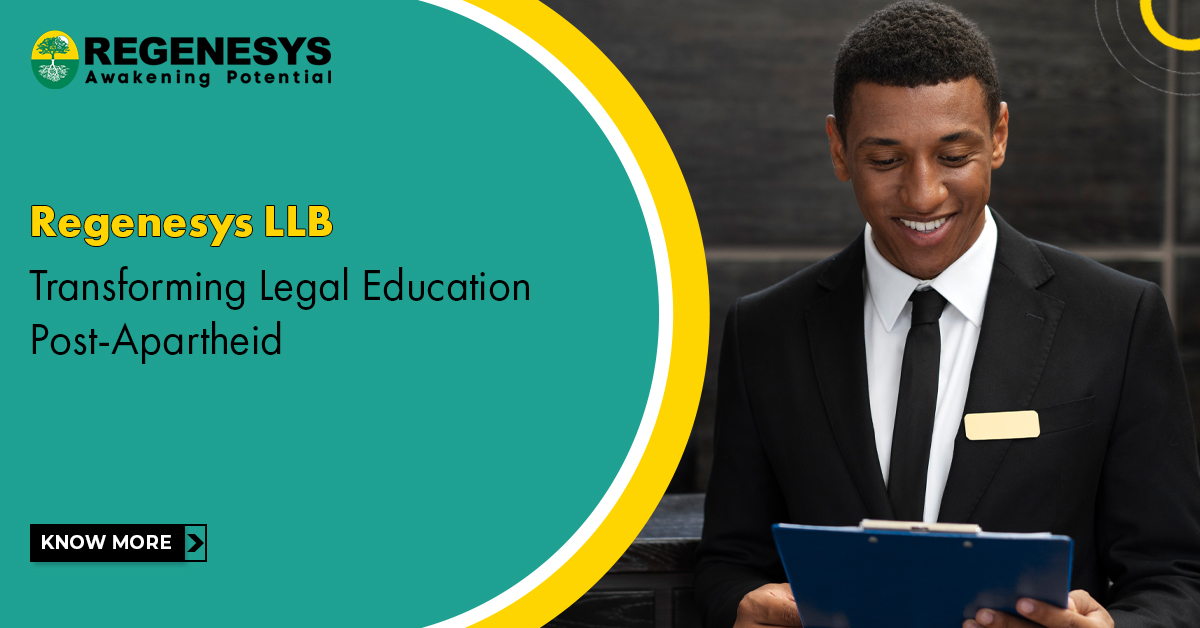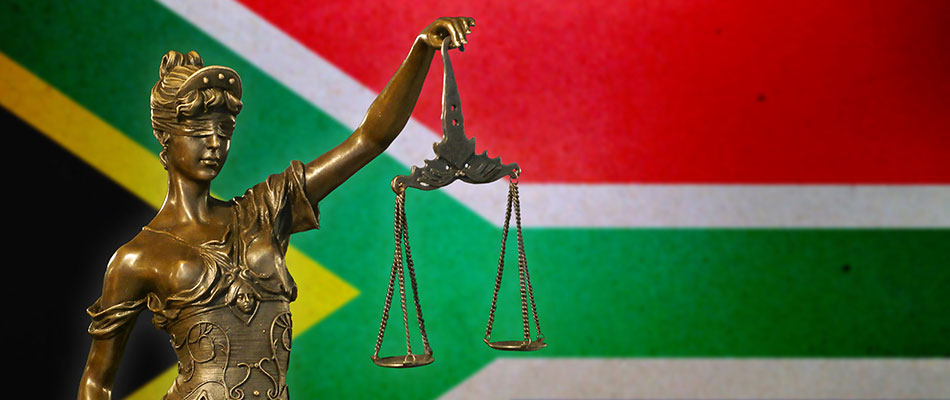The story of South African legal education is deeply intertwined with the historical legacy of apartheid, a system of institutionalised racial segregation that held sway for decades. One area where this influence is palpable is in the evolution of the LLB degree (Bachelor of Laws) —a foundational credential for aspiring lawyers. Examining the roots and ramifications of apartheid on legal education sheds light on the trajectory of the LLB degree in South Africa. In this article, let us understand how did apartheid affect legal education in South Africa.
Table of Contents
How did Apartheid affect Legal Education in South Africa
During the apartheid era, racial discrimination seeped into every facet of society, including education. South African universities were segregated along racial lines, with separate institutions for different racial groups. This segregation extended to legal education, with disparate opportunities and resources for different racial communities. Black students faced significant barriers to accessing quality legal education, with limited options and resources compared to their white counterparts. The discriminatory policies restricted access and hindered the development of a diverse legal education landscape.
LLB and Apartheid: Shaping the Curriculum
The impact of apartheid on the LLB curriculum was profound. The education system reflected the prevailing societal prejudices, with a curriculum that often neglected or downplayed marginalised communities’ legal rights and perspectives. The legal framework itself was tainted by discriminatory laws, shaping what was taught and how it was taught. This skewed representation within the LLB programme had lasting effects on the legal profession, influencing the perspectives and approaches of future lawyers.
Post-Apartheid Transformation
The dismantling of apartheid brought about significant changes in South African society, including its educational landscape. Efforts were made to address the historical injustices in legal education. Initiatives were undertaken to promote inclusivity, diversity, and equal access to legal education. Reforms in the LLB programmes aimed to offer a more comprehensive understanding of the law, incorporating diverse perspectives and addressing the past biases ingrained in legal education.
Regenesys Law School’s Contribution
In the contemporary context, institutions like Regenesys Law School are pivotal in shaping the LLB programme. As an institution committed to progressive education, Regenesys stands for an inclusive and diverse legal education. The Regenesys LLB programme aligns with the post-apartheid vision of a transformed legal education system. It emphasises a holistic understanding of the law, encourages critical thinking, and fosters a commitment to justice and equality. Through a dynamic curriculum and innovative teaching methods, Regenesys aims to produce competent and socially conscious legal professionals ready to navigate the complexities of today’s legal landscape.
Regenesys’ LLB Programme:
The Regenesys LLB Programme is an excellent example of progressive legal education, fostering a dynamic learning environment that champions inclusivity, critical thinking, and social responsibility. With a commitment to excellence, this programme goes beyond traditional teaching methods, offering a holistic understanding of the law.
With innovative curriculum design and a focus on practical application, Regenesys equips its students with the skills and knowledge necessary to thrive in a rapidly evolving legal landscape. The programme at Regenesys Law School instils a sense of ethical practice, preparing graduates to become adept, conscientious legal professionals poised to make a meaningful impact in law.
At Regenesys’s LLB Programme, our vision extends far beyond education—it’s about shaping futures and transforming perspectives. We believe in empowering tomorrow’s legal leaders with a commitment to justice, equality, and ethical practice. Together, we’re not just learning the law but redefining its impact. Join us in crafting a future where legal excellence meets social responsibility and where every case is an opportunity for positive change. Step into a world of possibilities with the Regenesys LLB Programme—a journey that doesn’t just follow the law but shapes it for a brighter, more equitable tomorrow.
Conclusion
The legacy of apartheid continues to reverberate through South African legal education. However, strides have been made to address the disparities and biases in the system. Once shaped by discriminatory practices, the LLB degree is now evolving into a more inclusive and diverse programme. Institutions like Regenesys Law School play a crucial role in this transformation, offering a progressive LLB programme that aligns with the values of equality and justice.
For more information about Regenesys Law School’s LLB programme and its commitment to a transformed legal education, visit our website here.
FAQs on How did Apartheid affect Legal Education in South Africa
How did Apartheid affect Legal Education in South Africa
Apartheid profoundly influenced legal education in South Africa by enforcing racial segregation in universities, limiting access to quality education for black students, and shaping a curriculum that often neglected the rights and perspectives of marginalised communities. This system created disparities in resources and opportunities among different racial groups.
What was the influence of apartheid on the LLB degree?
The LLB (Bachelor of Laws) degree in South Africa was significantly affected by apartheid. The curriculum reflected societal prejudices and discriminatory laws influenced what was taught and how it was taught. This resulted in a skewed representation within the programme, shaping the perspectives and approaches of future lawyers.
How has South African legal education transformed post-apartheid?
Following the end of apartheid, efforts were made to address historical injustices in legal education. Initiatives aimed to promote inclusivity, diversity, and equal access to legal education. Reforms in LLB programmes sought to offer a more comprehensive understanding of the law by incorporating diverse perspectives and rectifying past biases.
What role do institutions like Regenesys Law School play in transforming legal education?
Institutions like Regenesys Law School contribute significantly to transforming legal education by offering progressive LLB programmes. They emphasise inclusivity, critical thinking, and social responsibility, providing students a holistic understanding of the law. Regenesys prepares graduates to navigate today’s legal complexities while instilling a commitment to justice and equality.
How does Regenesys Law School’s LLB Programme differ from traditional legal education?
Regenesys Law School stands out by offering a dynamic and innovative LLB programme. It goes beyond conventional teaching methods, focusing on practical application and equipping students with skills relevant to the evolving legal landscape. The programme emphasises ethical practice, preparing graduates to make a meaningful impact as socially conscious legal professionals.
Where can I find more information about Regenesys Law School’s LLB Programme?
For detailed information about Regenesys Law School’s LLB Programme, including its curriculum, admission requirements, and the institution’s commitment to progressive legal education, visit their official website at Regenesys Law School.







